More than eight months ago, Mohammad Mokhber, head of the Executive Headquarters of Imam's Directive (“Setad”) – the Supreme Leader-owned holdings company that developed the Barekat Covid-19 vaccine – promised that by now, all kinds of Covid-19 vaccines would be available to Iranians. The public, he posited, would be able to choose any vaccine they wanted, “just like in a supermarket”.
This, remarkable though it may seem, did not happen. Not only did the Islamic Republic face delay upon delay in procuring any vaccines at all, but successive waves of new infections were allowed to happen in times of critical vaccine shortages.
In recent weeks, health officials have again reported a dearth of AstraZeneca: probably the vaccine most trusted by Iranians. The Ministry of Health also advised, with no actual scientific basis, that booster jabs given to Iranians be of a different brand to the first two jabs received.
Then Bahram Daraei, the head of Iran’s Food and Drug Administration, came out with an extraordinary pronouncement. “We are not importing anything,” Daraei stated baldly on January 5, after being asked by a reporter what percentage of Iran’s overall vaccine basket was coming from abroad.
Asked if this meant importing vaccines had been banned, he replied: “Yes. We rely entirely on domestic production, and domestic production will meet our needs, including for the third shot.”
Banned, or More to Come? Officials Contradict Each Other
Up until this point, the Islamic Republic had procured around 150 million doses of Covid-19 vaccine from abroad. Of these, about 131.6 million doses, or 88 percent, were the Chinese-made Sinopharm. Despite AstraZeneca generally being preferred, many Iranians had no choice but to accept this less effective vaccine for their first and second jabs.
Now, they are seemingly being told, they will have to diversify. Daraei indicated that a number of other Iranian-made vaccines were in development, adding: “We hope to be able to get international approval soon”. He also claimed Iranian manufacturers were able to produce at least 15 million doses a month, “which covers our needs”.
News of the change of direction didn’t appear to have reached all officials, however. Mohammad Hashemi, director of public relations for the Health Ministry, concurrently urged the public to be patient and promised that by next week ,700,000 doses of AstraZeneca would have been delivered to Iran from Japan.
While managers continue to talk at cross purposes, the Omicron variant is spreading rapidly in Iran. Both the National Coronavirus Taskforce and the Ministry of Health have urged people to seek a booster shot as soon as possible, in whatever form that is supposed to take. According to the Health Ministry, as of January 6 fewer than 10 million people had received a third jab.
“No AstraZeneca Whatsoever”
Alireza, a resident of Tehran, and his family received their first round of AstraZeneca shots a couple of months ago. They are now scrambling to find second doses of the same, but without luck. “Balad [a navigation app] shows you what kind of vaccines vaccination centers have,” Alireza told IranWire. “I live in eastern Tehran and right now, just a few centers – in the west of the city – in the city’s west have any AstraZeneca. I even looked at other provinces. All but three or four don’t have it.”
Even if they make the journey, there’s no guarantee the family will get the shots they are looking for. Atefeh, a trainee surgeon in Tehran looking for a booster jab, told IranWire she attended one of those centers but was told they had run out of AstraZeneca too. “Following the Balad app, I went to all the vaccination centers in north and west Tehran. None had AstraZeneca. I even went to Suleh in Kurdistan, where I got my second shot, and they didn’t have it either. You won’t find any AstraZeneca whatsoever.” Either the Balad app has not been updated, she said, or it was wrong to start with.
Only Those Planning to Travel Can Access AstraZeneca
The sheer level of vaccine disinformation emanating from Tehran and other states has meant many Iranians only trust a select few brands, AstraZeneca being one of the foremost. Hossein, a still vaccine-hesitant resident of Gorgan in the northeastern province of Golestan, says he has no faith in Iranian, Russian or Chinese-made shots. He is reluctant to accept anything but AstraZeneca for his first shot.
When he finally presented at a vaccination hub, he said, all they had there was Barekat and Sinopharm. Several more fruitless trips later, staff at one center told him that to get hold of AstraZeneca, he would need a special permit from the provincial health department.
“Now I’ve accepted the need to get vaccinated, I can’t find the vaccine I want,” Hossein told IranWire. “I was told I had to go to the health department with my passport, and get a letter. Eventually it transpired they only give these letters to people who plan to travel outside Iran. I wasn’t planning to travel, so it was impossible.”
No explanation has been given by the Iranian authorities as to why only Iranians intending to go abroad can access the more effective vaccine. But the Barekat vaccine is not approved by the World Health Organization, meaning third countries that require incoming travelers to be vaccinated may not accept it.
“At one time,” Hossein lamented, “they said vaccines would be all around us. What went wrong?” Now, he says, he won’t accept a jab “out of bloody-mindedness”, joining the at least eight million other Iranians who still have no Covid-19 protection at all.
“We Lied Our Way to AstraZeneca”
Neda and Mohammad are a young married couple who live in the city of Rasht, capital of the northern province of Gilan. Both were injected with Sinopharm twice in 2020. But because of the Health Ministry’s advice to diversify for the booster shot, and unable to find any AstraZeneca in Rasht, they began searching neighboring towns.
“In late December we went to a few vaccination hubs in Bandar Anzali,” Neda said. “It’s one of the bigger cities in Gilan but they didn’t have any. Then we went to Kuchesfahan, but they didn’t have it either. Eventually, we learned that the small city of Khoshkebijar had some.”
Staff at that center refused to given them AstraZeneca booster shots. “Because of the limited quantity,” Neda explained, “they said they’d reserved AstraZeneca for people aged over 40. We lied and told them that we were planning to travel to Europe. They made a few calls to, I think, the central vaccination center in Khoshkebijar – and gave us the permit.” In the end, both received their third jab on January 4.
The couple know plenty of others who have tried and failed to get hold of AstraZeneca, including Mohammad’s own father in Bandar Anzali. Relatives, they said, have mostly given up and accepted the lower-efficacy Sinopharm.
Official Coronavirus Statistics
According to the Health Ministry’s weekly statistics, a total of 229 patients are known to have lost their lives to Covid-19 in the week ending January 6. With 42 deaths, January 5 had the highest officially-recorded number of fatalities for the week.
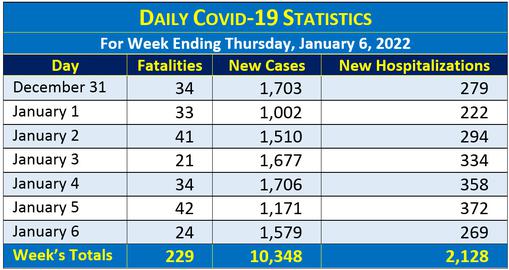
At the week’s end, 2,209 Covid-19 patients in Iran were being treated in ICUs. According to the Health Ministry, at the time of writing the total number of vaccine doses injected had reached 121,827,244.
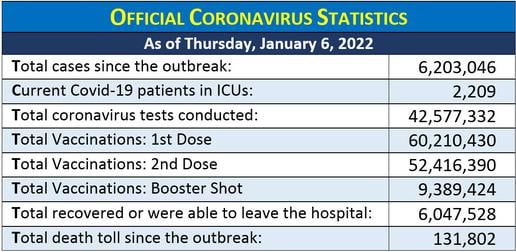
Related Coverage:
Health Minister Blames Iran's Early Vaccine Crisis on 'Political Pressure'
Iran Struggles to Record Omicron Cases Amid Dearth of Test Kits
Iran's Ambassador to Yemen Dies of Coronavirus
Iran's New 'Smart' Project Proposes Vaccine QR Codes for Offices and Supermarkets
Yalda Markets and Parties in the Crosshairs Amid Omicron Fears in Iran
Omicron Fears as Covid-19 on the Rise in Iranian Schools
Omicron Variant Looms but Iran has No Means of Detecting It
Iran About-Turns on Domestic Flu Jab
Fake Vaccine Certificates Already Circulating as Iran Reopens Universities
Anti-Vax Qom Scholars Protest Outside Shia Clerics' Houses
Schools Reopen in Iran Despite Covid-19 Safety Fears
Tehran Officials: Traffic Curfews Did Nothing to Stop Covid-19
visit the accountability section
In this section of Iran Wire, you can contact the officials and launch your campaign for various problems




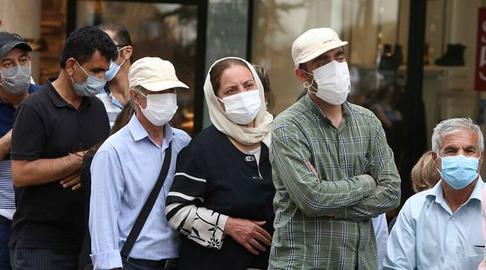

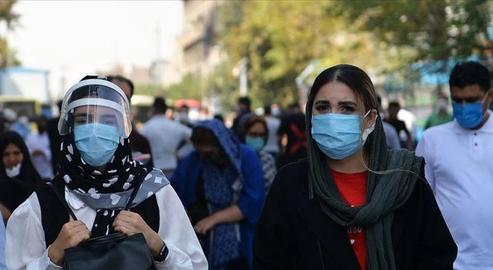
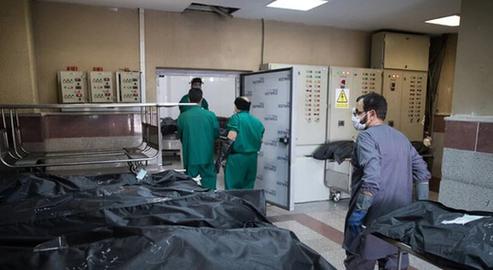

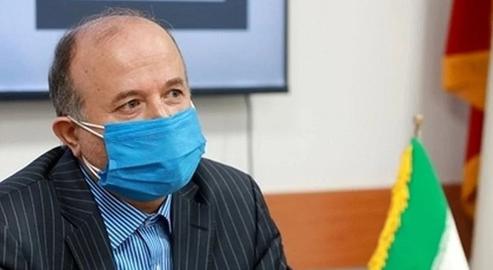
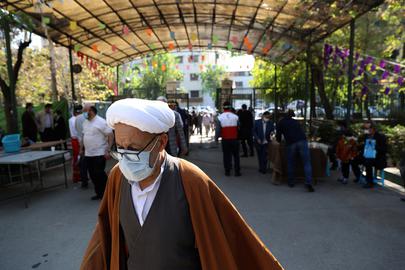

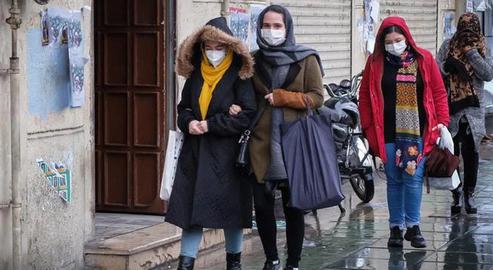

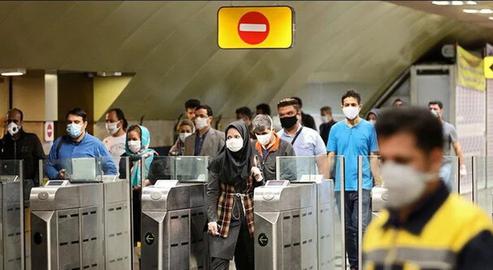
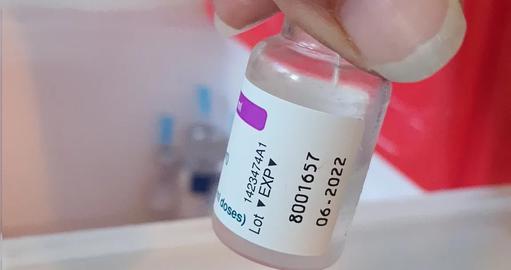
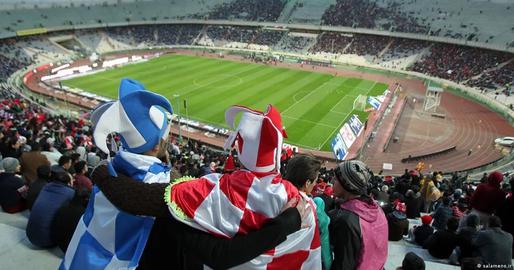
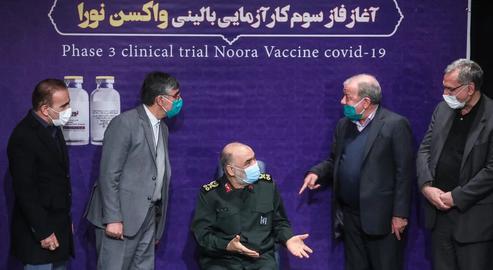
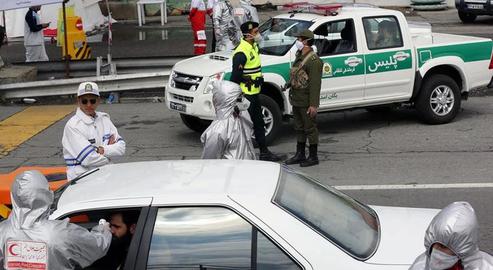

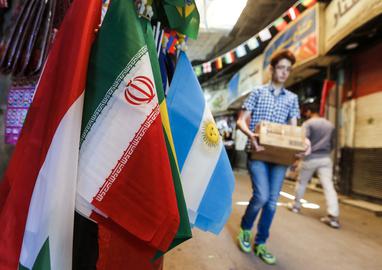
comments